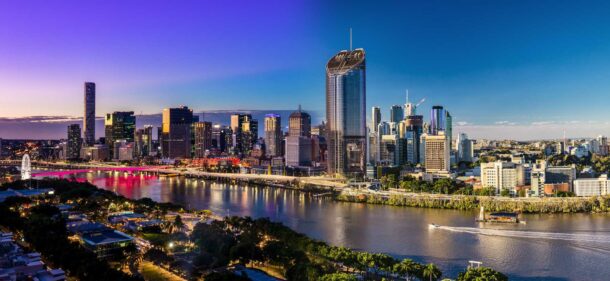Over the last two years, the continuously changing rules surrounding international travel have caused headaches for many travellers. Failing to comply with entry and exit requirements in both the country of origin and destination can lead to majorly time-consuming and costly issues. It is, therefore, no surprise that so many people find it overwhelming and stressful to plan a trip abroad these days.
Luckily, your trusted global relocation partners at Claymore Thistle have got you covered if you have any queries about vaccination rules for travellers entering Australia! Let’s dive right in.
Can I travel to Australia?
Yes! Australia reopened its international borders on 21 February this year. After nearly two years of one of the strictest and longest travel bans globally, Australia now welcomes fully vaccinated (and other eligible) travellers into the country. The ban on cruise ship entry into Australia was also recently lifted.
While Australia’s international borders are open to eligible travellers, different rules and regulations apply in each state. New South Wales and South Australia, for example, currently both require travellers to take an antigen test within 24 hours of arrival and remain in isolation until a negative result is received. The same rules apply in Queensland, although this state requires that travellers make use of private travel to their place of isolation. Western Australia also imposes limited travel to remote communities.
Who is eligible to travel to Australia?
Under current travel regulations, you can enter Australia if you are an Australian citizen, an Australian permanent resident, a New Zealand resident who normally resides in Australia (valid proof of residence in Australia is required), or a fully vaccinated or otherwise eligible traveller from elsewhere in the world (more details below).
Temporary visa holders entering Australia may have their visa cancelled and be detained and removed if they are not fully vaccinated for international travel purposes, do not have a medical contraindication to a COVID-19 vaccine, or are not in an exempt category or hold an individual travel exemption.
What is the definition of a fully vaccinated traveller?
According to the Australian Technical Advisory Group on Immunisation (ATAGI), a traveller is considered fully vaccinated against COVID-19 for international travel purposes once they have completed a course (including a mixed dose schedule) of TGA approved or recognised vaccines.
The TGA recognises all vaccines that are provisionally approved for use in Australia for incoming travellers, including Comirnaty (Pfizer), Vaxzevria (AstraZeneca), Spikevax or Takeda (Moderna), COVID-19 Vaccine Janssen (Janssen), and Nuvaxovid (Biocelect on behalf of Novavax). As of 17 January 2022, the TGA also recognises Coronavac (Sinovac), Covishield (AstraZeneca-Serum Institute of India), BBIBP-CorV for people under 60 years of age (Sinopharm China), Covaxin (Bharat Biotech), and Sputnik V (Gamaleya Research Institute) for the purpose of travel to Australia.
What are the COVID-19 vaccination requirements for travel to Australia?
Travellers entering Australia must provide proof of their vaccination status by means of an International COVID-19 Vaccination Certificate (ICVC). The vaccination requirements for entry into Australia for each age group are as follows:
- Travellers aged 16 years and older must have completed an appropriate primary course of a TGA approved or recognised vaccine and a booster dose three months after completing their primary vaccination course.
- Travellers aged 12-17who are unvaccinated or partially vaccinated will be exempt from Australia’s entry restrictions if they travel with at least one parent or legal guardian who is fully vaccinated for international travel purposes.
- Travellers below the age of 12are not required to provide proof of COVID-19 vaccination for entry into Australia.
Note that the final of the required vaccine dose must be administered at least seven days prior to travelling to Australia. Travellers entering Australia are subject to following the relevant vaccination requirements in each state or territory. (Here are the contact details of all the Australian states’ and territories’ health departments.) Certain public events and activities, for example, may require proof of vaccination in order to gain entry.
I am an Australian citizen/permanent resident — do I need a vaccination certificate?
All travellers entering Australia must declare their vaccination status. Proof of vaccination may also be requested from Australian citizens and permanent residents when travelling out of the country. When checking in for your flight to Australia, you will be asked to present your COVID-19 vaccination certificate to the airline staff. If you were vaccinated in Australia, you can access your ICVC from the MyGov portal.
Will foreign vaccination certificates be accepted?
Yes, a foreign COVID-19 vaccination certificate will be accepted for entry into Australia as long as it has been issued by a national or state/provincial-level authority or an accredited vaccination provider. If the certificate is not presented in English, it must be accompanied by a certified English translation. Your name, date of birth and passport number or national identity number must be entered correctly as this information appears in your passport. The vaccine’s brand name and the date of each dose administered must also be indicated on the certificate.
I cannot be vaccinated due to medical reasons — what now?
If you cannot be vaccinated against COVID-19 for medical reasons, you must provide valid evidence of a medical contraindication to gain entry into Australia. If you have recorded a medical contraindication to the Australian Immunisation Register (AIR) for all COVID-19 vaccines available in Australia, you can access a COVID-19 digital certificate or immunisation history statement to submit as evidence for travel purposes. If you do not have a medical contraindication recorded in the AIR, you will need to provide a medical certificate that proves you cannot be vaccinated against COVID-19 due to a medical condition.
Here is more information about temporary medical conditions for COVID-19 vaccination exemptions.
Do I need to present a negative pre-departure test?
No! As of 18 April, travellers entering or exiting Australia are no longer required to present a negative pre-departure test. Travellers arriving in Australia should however still complete a Digital Passenger Declaration within 72 hours of departure, while travellers arriving in Australia by sea must complete a Maritime Travel Declaration. As noted earlier, different states and territories may have different testing and vaccination requirements, so make sure you are up to date with the current COVID-19 rules and regulations of the region you are travelling to. All travellers, with the exception of children under the age of 11, must wear a mask for the duration of all flights.
Need global relocation services and assistance?
Reach out to Claymore Thistle today to schedule a call even for corporate relocations to Australia!
For more insights into living, working, and travelling in Australia, take a look at Claymore Thistle’s relocation blog.

